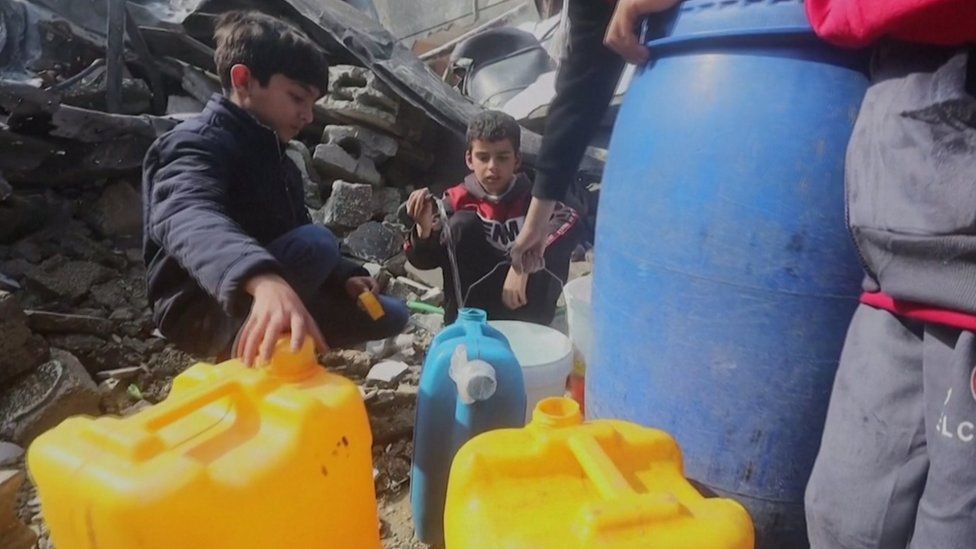North Gaza residents now have to survive on Animal feed as food becomes scarce in the ongoing conflict with Israel.
Reports emerging from the isolated northern region of Gaza paint a grim picture of children going without food for days as aid convoys are increasingly denied permits to enter.
Desperate residents have resorted to grinding animal feed into flour for sustenance, but even these makeshift measures are becoming unsustainable as grain stocks dwindle.
Residents living in the northern areas of Gaza have described dire circumstances, with some forced to dig into the soil to access water pipes for drinking and washing.
The situation has reached alarming levels, prompting the United Nations to issue a warning that acute malnutrition among young children in the north has sharply risen, surpassing the critical threshold of 15%.
According to the UN’s humanitarian coordination agency, Ocha, more than half of the aid missions to the north of Gaza were denied access last month, with increasing interference from Israeli forces in aid delivery.
This has left an estimated 300,000 people largely cut off from assistance, heightening the risk of famine.

Despite these alarming developments, a spokesman for the Israeli military agency responsible for coordinating aid access, Cogat, asserted in a briefing last month that there is “no starvation in Gaza. Period.” Cogat has consistently maintained that it does not limit humanitarian aid sent to Gaza.
According to a local medical aid worker in Beit Lahia, the situation seems dire as even basic food staples like grains and tinned goods are becoming scarce.
“What people are eating right now is basically rice, and only rice,” the medical aid worker was quoted lamenting about the severity of the crisis.
The World Food Programme (WFP) disclosed that Israeli forces had halted four out of the last five aid convoys into the north, resulting in a two-week gap between deliveries to Gaza City.
This interruption exacerbates the already precarious situation, leaving vulnerable populations in the northern region increasingly exposed to hunger and deprivation.